Civil Law (Books and Journals)
5220 results for Civil Law (Books and Journals)
-
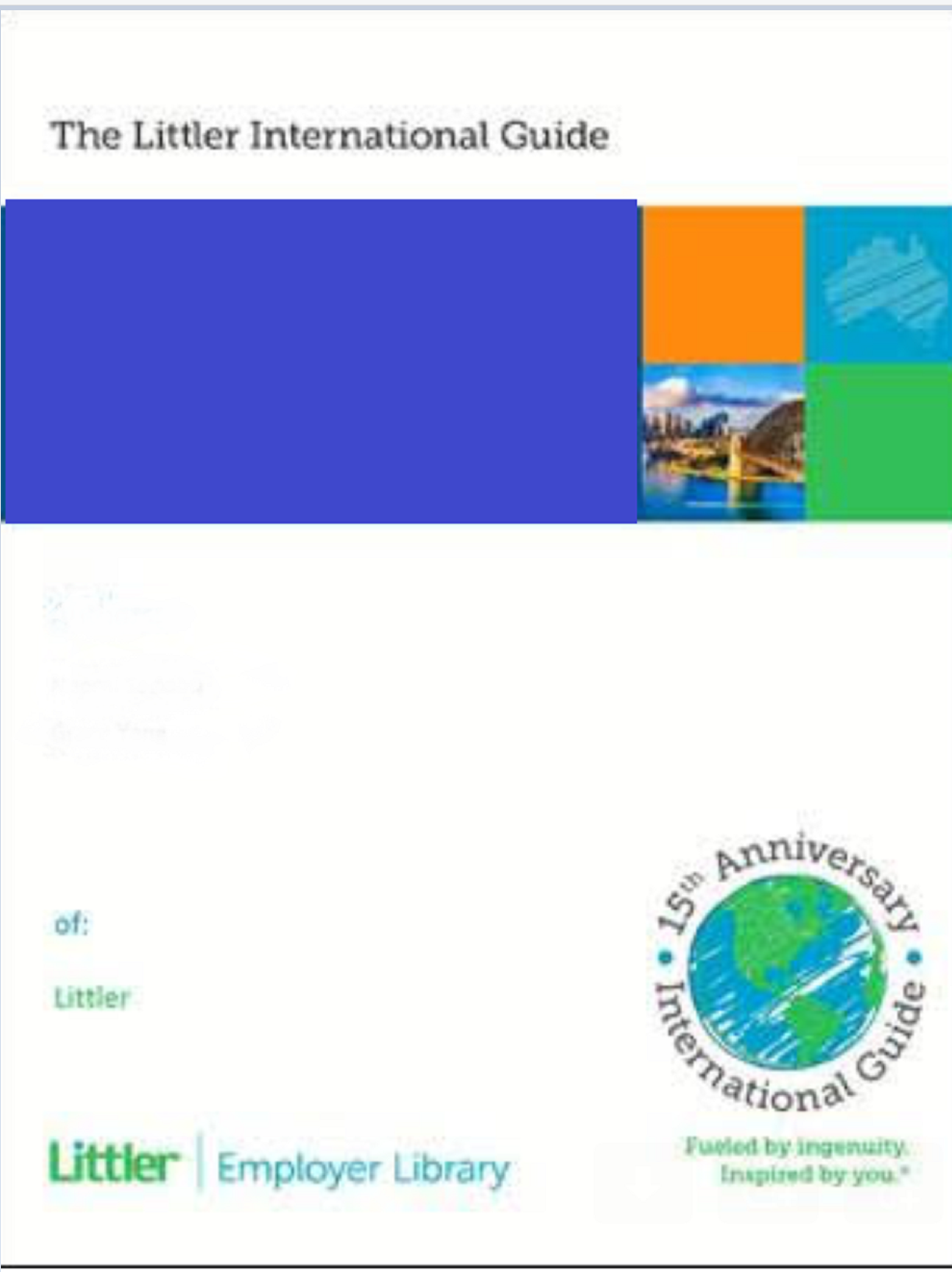 Littler International Guide - United Kingdom
Littler Mendelson, 2023
Littler International Guide - United Kingdom
Littler Mendelson, 2023
-
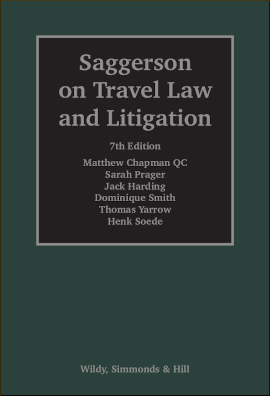 Saggerson on Travel Law and Litigation - 7th Edition
by:
Wildy Simmonds & Hill, 2022
Saggerson on Travel Law and Litigation - 7th Edition
by:
Wildy Simmonds & Hill, 2022
-
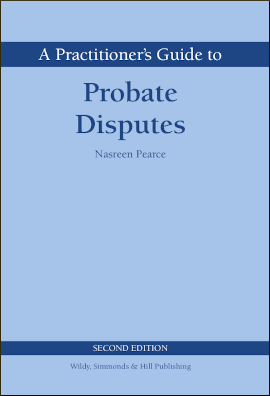 A Practitioner's Guide to Probate Disputes - 2nd edition
by:
Wildy Simmonds & Hill, 2022
A Practitioner's Guide to Probate Disputes - 2nd edition
by:
Wildy Simmonds & Hill, 2022
-
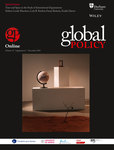 Global Policy
From No. 1-1, January 2010
to No. 10-4, November 2019
Wiley, 2022
Global Policy
From No. 1-1, January 2010
to No. 10-4, November 2019
Wiley, 2022
-
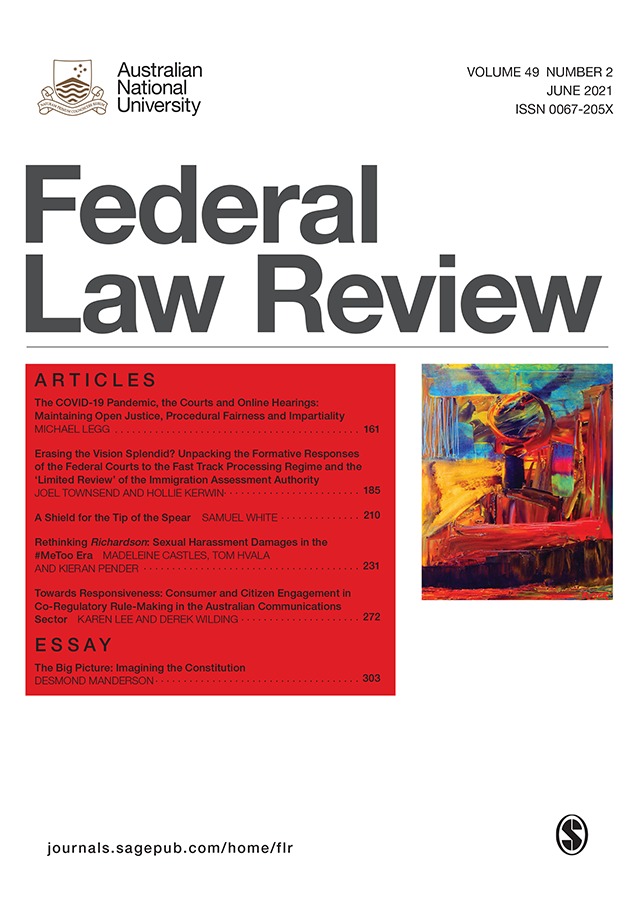 Federal Law Review
From No. 1-1, March 1964
to No. 51-3, September 2023
Sage Publications, Inc., 2021
Federal Law Review
From No. 1-1, March 1964
to No. 51-3, September 2023
Sage Publications, Inc., 2021
-
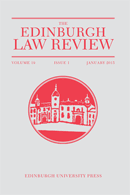 Edinburgh Law Review
From No. , January 2008
to No. , September 2020
Edinburgh University Press, 2021
Edinburgh Law Review
From No. , January 2008
to No. , September 2020
Edinburgh University Press, 2021
-
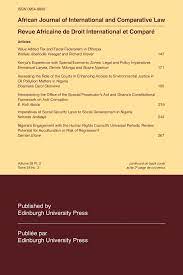 African Journal of International and Comparative Law
From No. , March 2008
to No. , November 2020
Edinburgh University Press, 2021
African Journal of International and Comparative Law
From No. , March 2008
to No. , November 2020
Edinburgh University Press, 2021
-
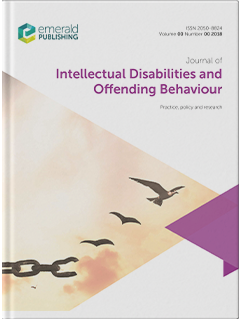 Journal of Intellectual Disabilities and Offending Behaviour
From No. 4-1/2, January 2013
to No. 11-2, February 2020
Emerald Group Publishing Limited, 2021
Journal of Intellectual Disabilities and Offending Behaviour
From No. 4-1/2, January 2013
to No. 11-2, February 2020
Emerald Group Publishing Limited, 2021
-
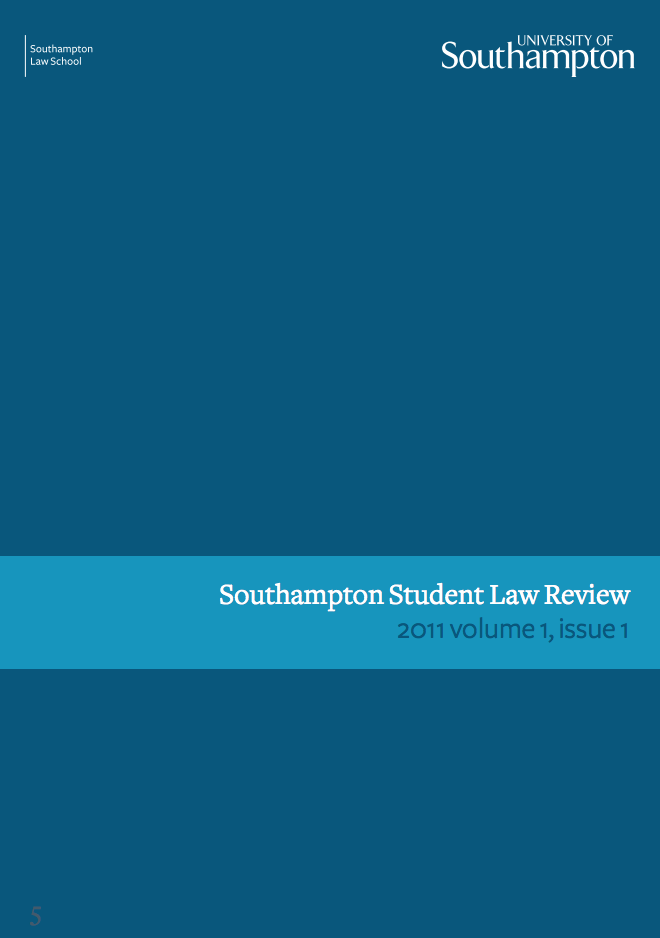 Southampton Student Law Review
From No. 1-1, January 2011
to No. 13-1, January 2023
University of Southampton, 2020
Southampton Student Law Review
From No. 1-1, January 2011
to No. 13-1, January 2023
University of Southampton, 2020
-
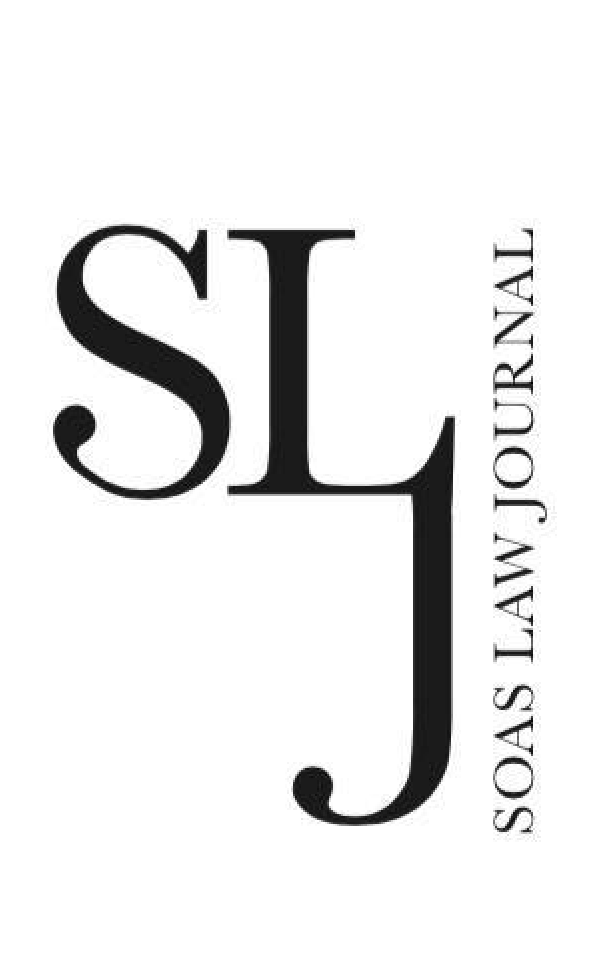 SOAS Law Journal
From No. I-I, January 2014
to No. VII-I, January 2020
SOAS University of London, 2020
SOAS Law Journal
From No. I-I, January 2014
to No. VII-I, January 2020
SOAS University of London, 2020
-
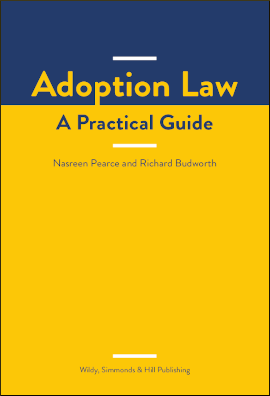 Adoption Law - A Practical Guide
by:
Wildy Simmonds & Hill, 2020
Adoption Law - A Practical Guide
by:
Wildy Simmonds & Hill, 2020
-
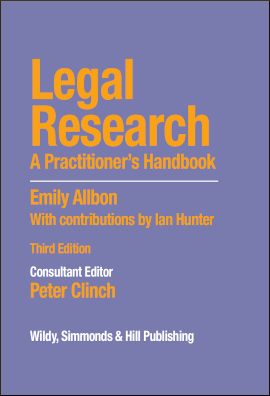 Legal Research. A Practitioner's Handbook - 3rd Edition
by:
Wildy Simmonds & Hill, 2019
Legal Research. A Practitioner's Handbook - 3rd Edition
by:
Wildy Simmonds & Hill, 2019
-
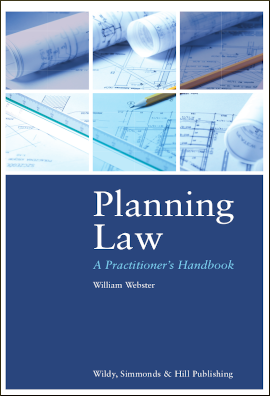 Planning Law. A Practitioner's Handbook
by:
Wildy Simmonds & Hill, 2019
Planning Law. A Practitioner's Handbook
by:
Wildy Simmonds & Hill, 2019
-
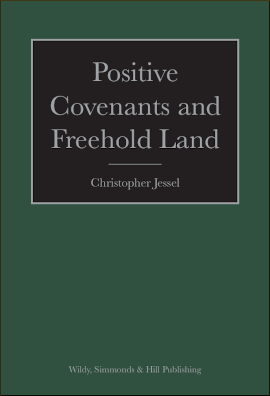 Positive Covenants and Freehold Land
by:
Wildy Simmonds & Hill, 2019
Positive Covenants and Freehold Land
by:
Wildy Simmonds & Hill, 2019
-
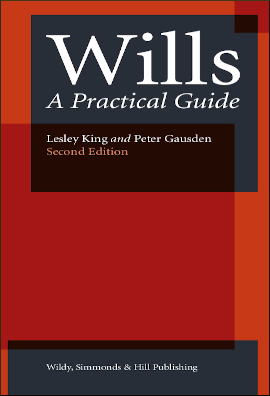 Wills A Practical Guide - 2nd Edition
by:
Wildy Simmonds & Hill, 2019
Wills A Practical Guide - 2nd Edition
by:
Wildy Simmonds & Hill, 2019
-
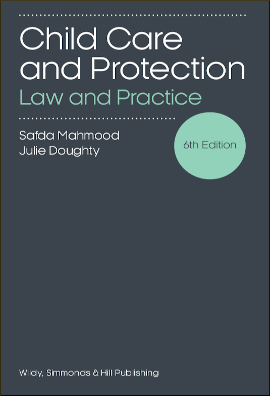 Child Care and Protection Law and Practice - 6th Edition
by:
Wildy Simmonds & Hill, 2019
Child Care and Protection Law and Practice - 6th Edition
by:
Wildy Simmonds & Hill, 2019
-
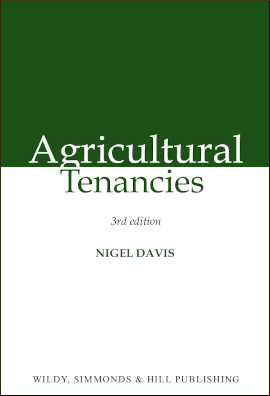 Agricultural Tenancies - 3rd edition
by:
Wildy Simmonds & Hill, 2018
Agricultural Tenancies - 3rd edition
by:
Wildy Simmonds & Hill, 2018
-
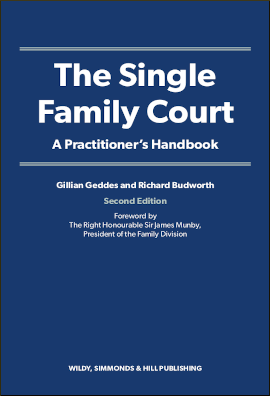 The Single Family Court: a Practitioner's Handbook - 2nd Edition
by:
Wildy Simmonds & Hill, 2017
The Single Family Court: a Practitioner's Handbook - 2nd Edition
by:
Wildy Simmonds & Hill, 2017
-
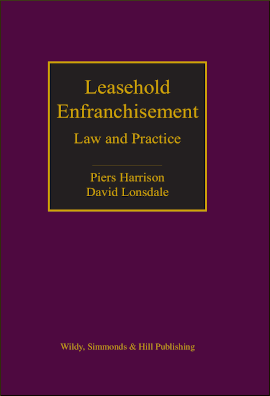 Leasehold Enfranchisement Law & Practice
by:
Wildy Simmonds & Hill, 2014
Leasehold Enfranchisement Law & Practice
by:
Wildy Simmonds & Hill, 2014
-
La decisión de acusar. Un estudio a la luz del sistema acusatorio inglés by: Dykinson, 2014
-
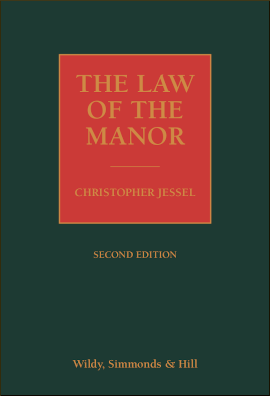 The Law of the Manor - 2nd Edition
by:
Wildy Simmonds & Hill, 2012
The Law of the Manor - 2nd Edition
by:
Wildy Simmonds & Hill, 2012
-
Applying a Human Rights Lens to Poverty and Economic Inequality: The Experience of the South African Human Rights Commission
The Constitution of South Africa, 1996, is committed to redressing poverty and inequality. This is evident in its inclusion of a range of justiciable socio-economic rights along with a strong substantive right to equality and non-discrimination. The South African Human Rights Commission is a state institution established by the Constitution to support constitutional democracy. It has wide-ranging
-
Lessons from Anti-Poverty Action in Ireland: Flexibility, Failure and the Pitfalls of a ‘Fourth Branch’ Model
This article reviews the experience of Ireland’s Combat Poverty Agency and asks what lessons it may have for fourth branch scholarship. The lesson of the Agency is, in part, one about the pitfalls for novel institutions operating within a traditional tripartite model of constitutional government. The article also suggests, however, that the Combat Poverty Agency’s history may point to the...
-
Commissioning Economic Equality? Lessons from Scotland
The Scottish Poverty and Inequality Commission (hereafter ‘the Commission’) is a relatively new fourth branch institution with responsibility for addressing both poverty and inequality in Scotland. Nonetheless, it has made important, if modest and incremental, inroads in achieving these objectives, by encouraging the collection and use by government of relevant data in policy-formation; and the...
-
Promoting Innovation or Exacerbating Inequality? Laboratory Federalism and Australian Age Discrimination Law
According to laboratory federalism, federal systems can promote governmental innovation and experimentation, while containing the risks of innovation to only one jurisdiction. However, it is unclear whether these benefits are realised in practice and whether states are actually effective ‘laboratories’. This article evaluates the extent to which laboratory federalism is occurring in practice,...
-
The Australian Constitution as a Framework for Securing Economic Justice
We contend that, contrary to mainstream understanding, the Australian Constitution provides a meaningful framework for ensuring economic justice, by virtue of its conferral upon the Commonwealth Parliament of particular legislative powers, namely the income justice and taxation powers. We draw on Rawlsian political theory, together with constitutional theory including recent work on...
- Democratic Constitutions, Poverty and Economic Inequality: Redress Through the Fourth Branch Institutions?
